
 Flash News
Flash News
Study / Climate change tripled the number of deaths from the recent heat wave in Europe
Details from the murder of Renis Dobra, it is suspected that the perpetrators ambushed the 23-year-old's car with weapons
Scandal at Belgrade airport/ Bus with Albanians blocked by police, then locked on plane
Accident in Kosovo, 1 victim and 4 injured reported
The appeal of the GJKKO upholds the prison sentence for Gjergj Cukali

One of the most common viruses in the world appears to significantly increase the risk of cancer, according to a new study from the International Agency for Research on Cancer (IARC), part of the World Health Organization (WHO).
Most people around the world have been infected with the Epstein-Barr virus (EBV) at some point in their lives. The virus spreads easily through saliva and other bodily fluids and usually causes no symptoms, but it can lead to mononucleosis, also known as the “kissing disease.”
Scientists previously knew that EBV, which stays in the body forever, could cause some types of cancer, such as lymphomas and a rare form of throat cancer. The new study, published in the journal Nature Communications, shows that the virus can increase the risk of developing other cancers, years before diagnosis.
Researchers followed nearly 74,000 people in southern China for 8 to 10 years, identifying 1,990 cases of cancer. They also tested for the presence of antibodies to EBV, which indicate whether someone had previously been infected with the virus. According to the study, people with EBV antibodies were about five times more likely to develop cancer compared to those without antibodies.
The higher the antibody levels, the higher the risk of cancer.
The highest risks were identified for nasopharyngeal cancer, a rare form that affects the part of the throat that connects the nose to the back of the mouth. People with EBV were 26 times more likely to develop this type of cancer. EBV antibodies were also linked to increased risks for lung cancer, liver cancer and lymphoma.
Dr. Zisis Kozlakidis, co-author of the study and head of the laboratory support unit at IARC, said the findings help understand the link between EBV infection and the risk of various types of cancer.
The researchers emphasized that the results may not apply to every demographic group and that other factors such as smoking may have influenced the results.
However, they called for further investigation to understand how EBV may cause changes in cells that make them more prone to becoming cancerous.
Most people who have had mononucleosis will not develop cancer as a result of the virus, but knowing the risk can help you spot early signs of the disease.
Latest news



Trump and Israeli commander warn: Gaza ceasefire could be near
2025-07-09 22:13:21
Fire in Elbasan Landfill, pedagogue: It is a cancer and environmental crime
2025-07-09 21:54:47

Dangerous summer, number of snake bites increases
2025-07-09 21:22:13
Berisha appeals again: Stop state terror against the residents of Theth!
2025-07-09 21:15:36
'Kissing disease' virus linked to several forms of cancer
2025-07-09 21:04:44
Malltezi confesses after release: Justice has become a political weapon
2025-07-09 20:51:48
Vokshi: Albania's EU integration has stalled due to lack of free elections
2025-07-09 20:37:21


Head of the Police Supervision Agency, Florian Sulejmani, resigns
2025-07-09 19:58:03

Trump returns to tariffs, as Europe seeks trade dialogue
2025-07-09 19:45:49

Moral Dilemma: Hooking Up with Your Friend's Ex? Psychology Provides the Answer
2025-07-09 19:26:41
Theth, Shehaj: A strategic investor will emerge
2025-07-09 19:11:46

Albanian expert warns: NATO must wake up, war with 'light' is coming
2025-07-09 18:47:04

Ancelotti sentenced to one year in prison in Spain for charges
2025-07-09 18:24:44

Osmani visits Washington, meets with the acting Assistant Secretary of State
2025-07-09 18:03:26
EU report, Nesho: Europe is fed up with propaganda
2025-07-09 17:50:34

EP urges Albania to halt controversial projects damaging the environment
2025-07-09 17:26:18
Self-talk, the secret that helps us calm our minds
2025-07-09 17:19:55
Our Prime Minister's 1000th day!
2025-07-09 17:11:24
Accident in Kosovo, 1 victim and 4 injured reported
2025-07-09 17:01:27
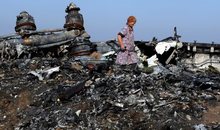
European Court finds Russia guilty of violations in Ukraine
2025-07-09 16:45:35

The appeal of the GJKKO upholds the prison sentence for Gjergj Cukali
2025-07-09 16:09:42

For a perfect tan, you should eat these foods
2025-07-09 15:55:05
A little light, oh prince...
2025-07-09 15:46:08
Can you protect Velina by serving Edi Rama?
2025-07-09 15:37:51
Bosnian court lifts detention order for Republika Srpska leaders
2025-07-09 15:23:01

Milk production follows the decline of livestock farming
2025-07-09 14:59:38
Man arrested after setting fire to aunt's apartment
2025-07-09 14:54:17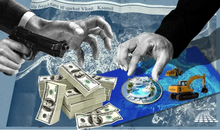

3 in 4 people who go to parties regularly will remain single for life
2025-07-09 14:29:47
Trump threatens to bomb Moscow if it attacks Ukraine
2025-07-09 14:28:40
Clashes in Montenegro after prestigious award given to Montenegrin nation-denier
2025-07-09 14:15:48
Tirana/ 59-year-old man falls from the second floor of his apartment
2025-07-09 14:05:28






Edi Rama's summer Delirium
2025-07-09 13:05:42
Wanted by Italy, drug trafficker arrested in Durrës (NAME)
2025-07-09 12:50:13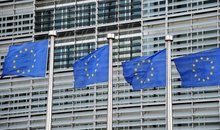
European Parliament adopts report on Albania
2025-07-09 12:44:25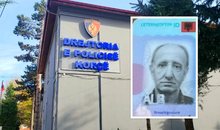
NAME/ Elderly man found dead in Devoll River, investigation leads
2025-07-09 12:24:47
Taxes warn of on-site inspection for invoice sales of agricultural products
2025-07-09 12:20:59
Climate change tripled heat-related deaths in Europe
2025-07-09 12:10:28
From the ground to paper, Rama announces new reform for "untouched lands"
2025-07-09 11:58:17
The 44th attempt to create a new Assembly for Kosovo also fails
2025-07-09 11:45:22
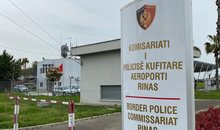
The head of the Rinas police station is reconfirmed in office
2025-07-09 11:25:03


Found dead in Shkopet Lake, 23-year-old has injuries to his throat
2025-07-09 10:41:39


Hoxha: We will have a parliament that will surpass any comedy program!
2025-07-09 10:10:32

Directors targeted! After Fier and Durrës, Rama arrives in Elbasan
2025-07-09 09:53:57
Name/Identification of the 23-year-old found dead near Shkopet Lake
2025-07-09 09:42:34
IKM action in Theth, residents come out in protest
2025-07-09 09:34:54
Reasons why the EU has not imposed new sanctions against Russia
2025-07-09 09:18:35
DW: Online scams increase human trafficking
2025-07-09 09:01:29

Reported missing by his father, 23-year-old found dead near Shkopet lake
2025-07-09 08:42:13
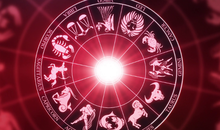
Horoscope, what do the stars have in store for you today?
2025-07-09 08:25:44
Sun and rain, Wednesday with unstable weather
2025-07-09 08:06:58
Posta e mëngjesit/ Me 2 rreshta: Çfarë pati rëndësi dje në Shqipëri
2025-07-09 07:52:02

Tabaku: Salianji bore a political cost that no one in Albania has borne
2025-07-08 22:36:15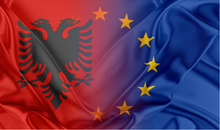


Sekretet për të shijuar verën si një ‘profesionist’
2025-07-08 21:45:06


Albania's Waste Crisis: Toxic Smoke and Deep Governance Problems
2025-07-08 21:13:07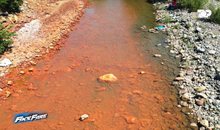
Alarming pollution in Fushë-Arrëz, copper factory waste turns the Fan River red
2025-07-08 21:07:14

Poll/ How do you assess the Prime Minister's intervention in local government?
2025-07-08 20:40:01
28 arrested in Italy and Spain for drug trafficking, including an Albanian
2025-07-08 20:24:14
Residents clash with police in Theth: We are on our land
2025-07-08 20:11:41
Death of 27-year-old in Lipjan, Osmani: To be investigated independently!
2025-07-08 20:06:52
Trump promises US will send more weapons to Ukraine
2025-07-08 19:54:25

EU targets health, education, police and cadastre as areas of corruption
2025-07-08 19:23:34

